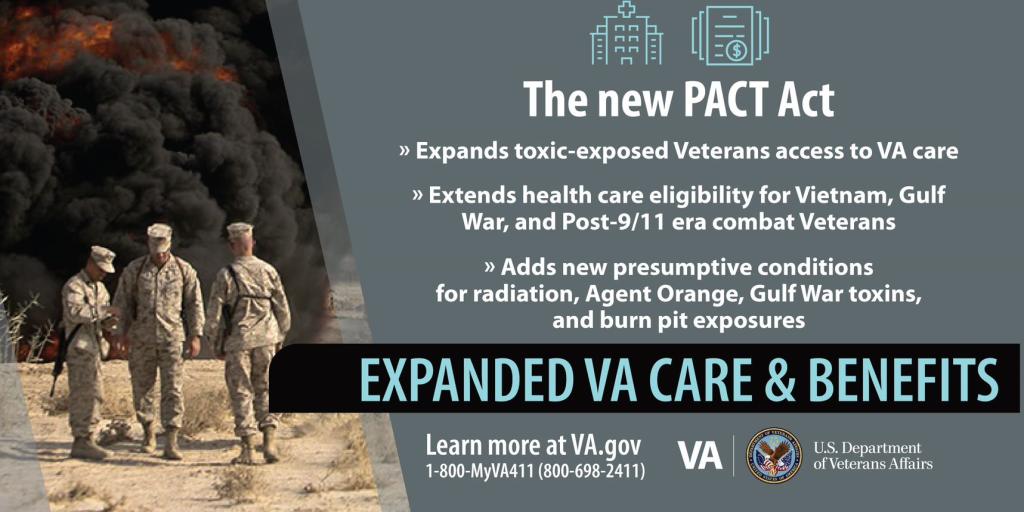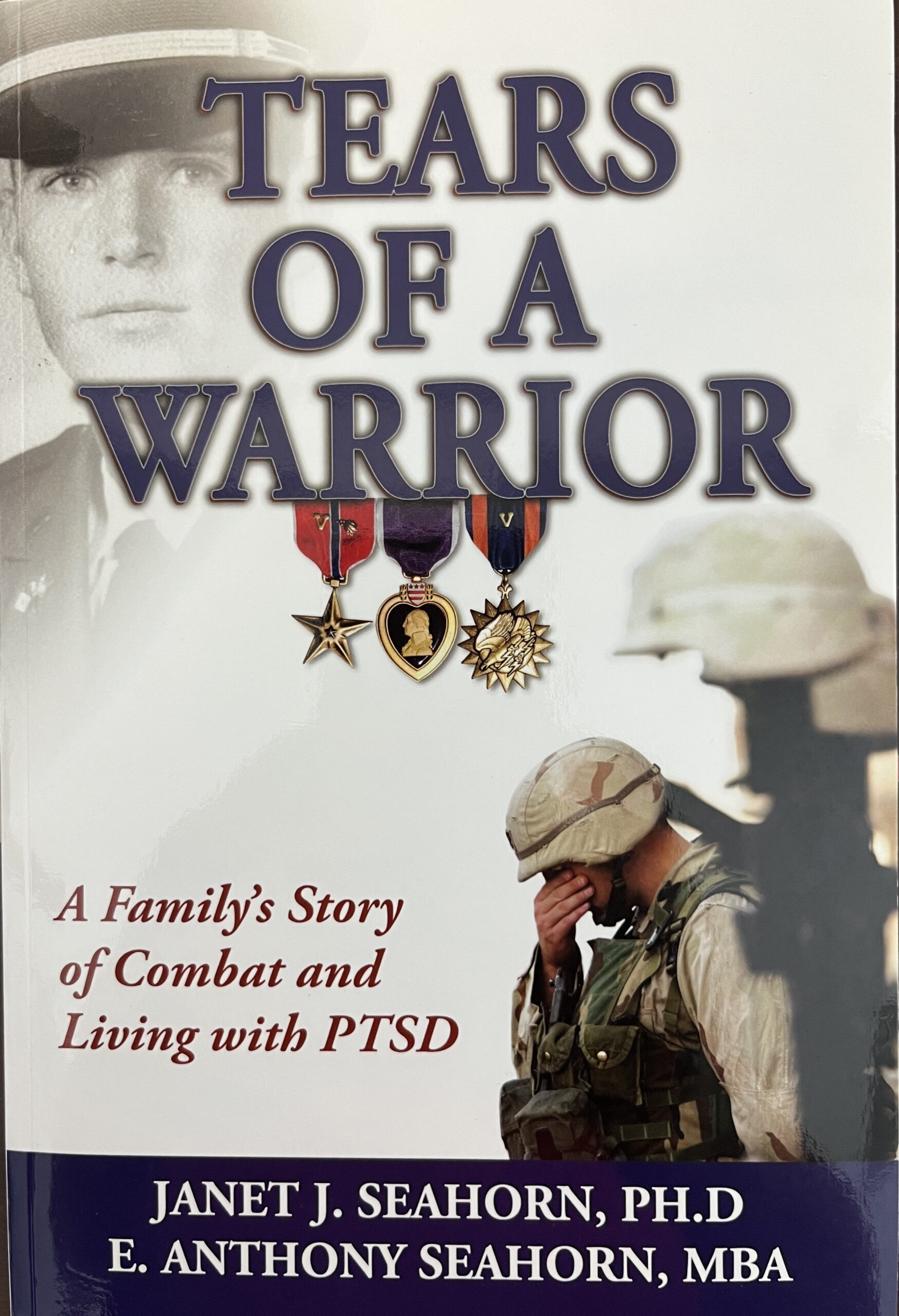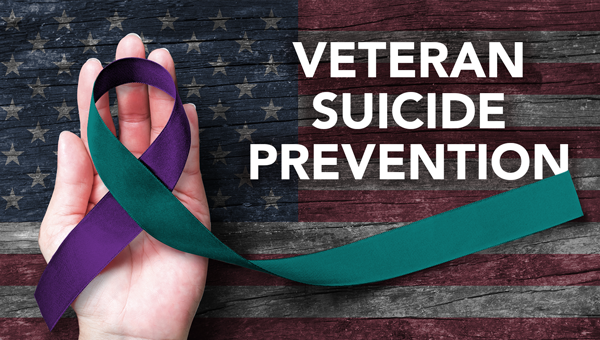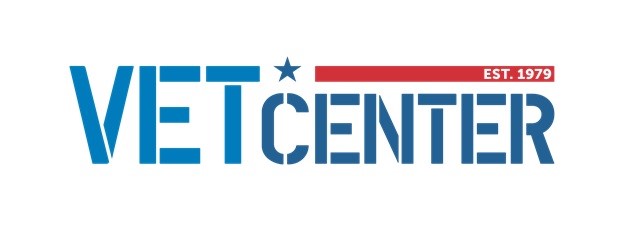|
View this email in a browser
If you know a veteran, please forward this issue to them (you can sign up for my mission reports here). There are some important updates, resources and information they can use.
In this Update:
- Next PACT Act Enrollment Deadline
- VA, DoD Collaborating to Expand Breast Cancer Screening Eligibility
- My Recommended Read for Veterans in the Month of September
- VA Mental Health Services Seek to Decrease Stigma Around Mental Health
- You Can’t Always See the Signs of a Crisis
- VA Announces More than $1 Billion in Grants to Combat Homelessness
- Vet Centers
Next PACT Act Enrollment Deadline

Until 11:59 p.m. Sept. 30, 2023, veterans who deployed to a combat zone, never enrolled in U.S. Department of Veterans Affairs (VA) health care and left the military between Sept. 11, 2001, and Oct. 1, 2013, are eligible to enroll directly in VA health care through the PACT Act. This special enrollment period gives veterans who served in Iraq, Afghanistan and other combat zones an opportunity to enroll directly in VA health care without first applying for disability compensation benefits.
The VA is encouraging all of these veterans to visit VA.gov/PACT or call 1-800-MYVA411 to learn more and sign up for VA health care before the deadline. Even if you don’t need this care now, you may need it in the future, and once you’re in, you have access for life. But don’t wait – the deadline is Sept. 30 – so go to VA.gov/PACT and apply today.
VA, DoD Collaborating to Expand Breast Cancer Screening Eligibility

The Dr. Kate Hendricks Thomas Supporting Expanded Review for Veterans in Combat Environment (SERVICE) Act was signed into law last year to expand breast cancer screening eligibility for veterans and ensure research continues to advance our knowledge of toxic exposures and breast cancer.
As part of the SERVICE Act, the VA will expand breast cancer risk assessments and clinically appropriate mammograms to women veterans who have experienced toxic exposure. Additionally, the VA and the Department of Defense are working together to identify additional locations and time periods of service for toxic exposure, beyond those indicated in the current law. According to the agencies, this will expand eligibility for these services in the future.
If you are not currently enrolled in VA health care, you still may be eligible for a screening due to expanded eligibility under the SERVICE Act. You can explore health care enrollment here.
And with the enactment of the PACT Act, the VA is now authorized to provide care and benefits to millions of toxic-exposed veterans and their survivors. You can contact your VA primary care provider to learn more or visit the PACT Act website. To discover the full range of VA health services for women veterans, visit Women’s Health Care Needs | Veterans Affairs (va.gov) or call the Women Veterans Call Center at 855-829-6636.
My Recommended Read for Veterans in the Month of September
Tears of a Warrior: A Family’s Story of Combat and Living with PTSD

While many people may assume war-related trauma is responsible for most military veteran suicides, the stigma associated with seeking mental health care and civilian life crises are also major contributors to the onset of Post Traumatic Stress Disorder (PTSD).
Experts estimate that between 25% and 30% of Vietnam veterans who fought in combat have symptoms of PTSD and the experiences associated with combat. Even more recent estimates confirm that 30% of combat soldiers returning from service in Iraq and Afghanistan are experiencing similar trauma.
Going far beyond the analysis of suicidal tendencies and troubling statistics, “Tears of a Warrior: A Family’s Story of Combat and Living with PTSD” was specifically “written to educate families and veterans about the symptoms of PTSD and to offer strategies for living with the disorder.”
From the book: “Long after the cries of battle have ended, many warriors return home to face a multitude of physical and mental challenges. Author Tony Seahorn writes from his experience as a young army officer in Vietnam who served with the Black Lions of the First Infantry Division, which fought in some of the bloodiest battles of the war. He was wounded in action and continues to recover from the physical and emotional scars of combat…
“Janet Seahorn, Tony’s wife and co-author, writes from both the perspective of a wife who has lived for thirty years with a veteran with PTSD, and as a professional in human development and neuroscience. Dr. Seahorn’s research has focused on the effects PTSD has on the brain, body, and spirit…
“The book includes over 50 photos integrated into the text which provide the reader with a visual picture of the sequence of events as the storyline moves from the realities of combat, to returning home, to the ultimate impact on family and friends…
“Veterans from all wars, regardless of service branch, will benefit from the authors’ experiences and their message of hope.”
Right here at home in Pennsylvania, veterans in crisis or their family members can contact the Veterans Crisis Line by dialing 988. Free and confidential support is available 24 hours per day, seven days a week.
A convenient list of suicide prevention programs and initiatives is also available on the Pennsylvania Department of Military and Veterans Affairs website.
VA Mental Health Services Seek to Decrease Stigma Around Mental Health

Veterans and service members experience PTSD at higher rates than the general population. But many veterans are unaware of the resources available to them or they’re hesitant to seek treatment.
The VA provides mental health services for PTSD, mood disorders, anxiety disorders and more. The VA offers a wide array of service through its VA Telehealth, including its TeleMental Health program which remotely connects veterans with a VA mental health provider from the location of their choice. All they need is a computer or internet-capable device.
Veterans also have access to VA’s suite of mental health apps developed with input from veterans. VA apps can enable veterans to be more involved in their care and manage their symptoms. Veterans can use these free self-guided apps as a supplement to their traditional mental health treatment through the VA.
Those apps include the PTSD Coach app, the PTSD Family Coach app, the AIMS for Anger Management app and the CBT-i (cognitive behavioral therapy for insomnia) Coach app.
App users can also quickly connect to support, such as the Veterans Crisis Line or Vet Center Call Center.
While these apps are valuable tools, it’s important to note that only a trained provider can diagnose PTSD. The apps don’t replace treatment with a health care professional. Anyone who needs mental health treatment should schedule an appointment with a provider. If you are not already using VA medical services, contact your nearest VA medical center or Vet Center to talk about your needs and how to enroll.
To learn more about VA mental health apps and resources, visit the National Center for PTSD’s webpage and the VA Mobile website.
You Can’t Always See the Signs of a Crisis

While it’s always important to be aware of signs that a veteran is struggling and may be heading toward a crisis or having thoughts of suicide, not all signs are obvious.
According to the VA’s Office of Mental Health and Suicide Prevention, some signs of a crisis are internal, invisible and intangible.
The VA notes these signs can be such things as a usually sociable person staying home when friends are getting together, giving away prized possessions, securing long-term care for their pets, someone starting to miss doctor’s appointments or no response to phone calls, emails or texts.
Those in the military are trained to downplay their burdens and feelings of discomfort to put the mission first. Upon becoming a military veteran that training just doesn’t disappear. This can lead veterans to try to bury their challenges.
Making sure we all understand the range of what a crisis may look like can help in finding needed support and preventing suicide. You can read more about how to do that here.
If you feel like you may be in crisis, or you feel like a veteran you care about may be in crisis, contact the Veterans Crisis Line: Dial 988 then Press 1, chat at VeteransCrisisLine.net/Chat or text 838255. Caring, qualified responders are ready to listen and help 24/7.
If you think a crisis might happen but there’s no immediate danger, take a look at the VA’s suicide prevention website. You can also visit VeteransCrisisLine.net to learn more about crisis and how to find local resources.
VA Announces More than $1 Billion in Grants to Combat Homelessness

VA recently announced more than $1 billion in grants will be awarded this year to help homeless and at-risk veterans.
The VA is awarding 256 grants totaling approximately $799 million through its Supportive Services for Veteran Families program. Grants will go to community organizations that help rapidly rehouse veterans and their families, prevent the imminent loss of veterans’ homes or identify more suitable housing situations for veterans and their families.
Another 454 grants totaling approximately $257 million will be awarded through the Homeless Providers Grant and Per Diem program. This money will be used by community organizations that provide veterans with transitional housing and case management — including connecting veterans to VA benefits, community-based services and permanent housing.
Through July 2023, 26,470 veterans have been permanently housed this calendar year, which the VA says puts it on pace to exceed its goal of housing 38,000 homeless veterans in 2023.
These grants are a critical part of VA’s efforts to provide housing for veterans in collaboration with the community. For more information about VA’s efforts to end veteran homelessness, visit VA.gov/homeless.
What are Vet Centers?

I’ve been asked this question by several of my fellow vets and feel it’s important to provide an answer to those who haven’t reached out yet.
VA Vet Centers provide free and confidential readjustment counseling for War-Zone Veterans and their families, World War II to the current Global War on Terror.
Vet Centers are small, non-medical, counseling centers conveniently located in our region. They’re staffed by highly trained counselors and team members dedicated to seeing you through the challenges that come with managing life during and after the military.
Our region is served by the DuBois Vet Center, which is one of 12 Vet Centers in Pennsylvania and over 300 across the country. Whether you come in for one-on-one counseling or to participate in a group session, at Vet Centers you can form social connections, try new things, and build a support system with people who understand you and want to help you succeed. The Dubois Vet Center’ website is designed to provide veterans, family members, and community partners the ability to see what services the center offers, as well as the center’s Community Access Points with a picture of the entrance so first time visitors have a frame of reference to help guide them in.
From my time in the State House through my current position, I’ve had a strong relationship with the Dubois Vet Center. They have helped me help many of my fellow vets.
Two Recreational Therapy Groups Available at the Dubois Vet Center
As part of a national competition, the DuBois Vet Center was approved for initial funding for two recreational therapy groups.
One of the groups is an introduction to fly tying for fly fishing, with one of the center’s counselors being an avid fly tyer and fisherman. The other group is a no sew blanket group, which the center hopes will generate interest from women veterans, but the group is open to anyone who would like to join.
The groups will be held at the Vet Center with approximately 4 cohorts to run quarterly with 6 vets in each cohort. The center says it hopes to grow these groups and potentially be able to have them at the center’s Community Access Points (CAPs) in McKean, Centre and Blair counties, with the possibility of adding more recreational therapy groups in the future.
The center noted the initial funding will help them launch the groups, but they will be actively trying to obtain additional funding they can expand on them.
Who is eligible to receive services at Vet Centers?
Vet Center services are available to Veterans at no cost, regardless of discharge character, and without the need to be enrolled in VA health care or having a service-connected disability. If you are a Veteran or service member, including members of the National Guard and Reserve, you can access Vet Center services if you:
- Served on active military duty in any combat theater or area of hostility.
- Experienced military sexual trauma (regardless of gender or service era.)
- Provided mortuary services or direct emergent medical care to treat the casualties of war while serving on active military duty.
- Performed as a member of an unmanned aerial vehicle crew that provided direct support to operations in a combat theater or area of hostility.
- Accessed care at a Vet Center prior to Jan. 2, 2013 as a Vietnam-Era Veteran.
- Served on active military duty in response to a national emergency or major disaster declared by the president, or under orders of the governor or chief executive of a state in response to a disaster or civil disorder in that state.
- Are a current or former member of the Coast Guard who participated in a drug interdiction operation, regardless of the location.
Contacting your local Vet Center
Even if you are unsure if you meet the criteria to receive services from a Vet Center, please contact a center. From personal experience I can tell you that, if the center can’t help you, they’ll find someone who will.
Center services are also available to family members when their participation would support the growth and goals of the Veteran or active-duty service member. If you consider them family, so does your local center. Bereavement services are also available to family members of Veterans who were receiving Vet Center services at the time of the Veteran’s death, and to the families of service members who died while serving on active duty.
The DuBois Vet Center, located at 100 Meadow Lane, Suite 8, DuBois, PA 15801, can be contacted at 814-372-2095 or toll free 24/7 at 1-877-WAR-VETS (927-8387).
The DuBois Vet Center recently announced counseling and referral services are now being provided at the State College American Legion Post 245, in addition to the many services they offer at their locations in DuBois, Altoona, Bradford, Penn State-DuBois, Smethport and their mobile Vet Center.
The other Vet Center locations in Pennsylvania are:
- Bucks County Vet Center, 2 Canals End Road, Suite 201B, Bristol, PA 19007, 215-823-4590
- Erie Vet Center, 240 West 11th Street, Suite 105, Erie, PA 16501, 814-453-7955
- Harrisburg Vet Center, 1500 N. Second Street, Harrisburg, PA 17102, 717-782-3954
- Lancaster Vet Center, 1817 Olde Homestead Lane, Suite 207, Lancaster, PA 17601, 717-283-0735
- Norristown Vet Center, 320 East Johnson Highway, Suite 201, Norristown, PA 19401, 215-823-5245
- City Center Philadelphia Vet Center, 801 Arch Street, Suite 502, Philadelphia, PA 19107, 215-627-0238
- Northeast Philadelphia Vet Center, 101 East Olney Avenue, Philadelphia, PA 19120, 215-924-4670
- Pittsburgh Vet Center, 2500 Baldwick Road, Suite 15, Pittsburgh, PA 15205, 412-920-1765
- Scranton Vet Center, 1002 Pittston Avenue, Scranton, PA 18505, 570-344-2676
- White Oak Vet Center, 2001 Lincoln Way, Suite 280, White Oak, PA 15131, 412-678-7704
- Williamsport Vet Center, 49 East Fourth Street, Suite 104, Williamsport, PA 17701, 570-327-5281
For more information, please visit www.vetcenter.va.gov

For anyone who hasn’t already signed up to receive my mission reports, you can get on the e-newsletter mailing list here.
|














